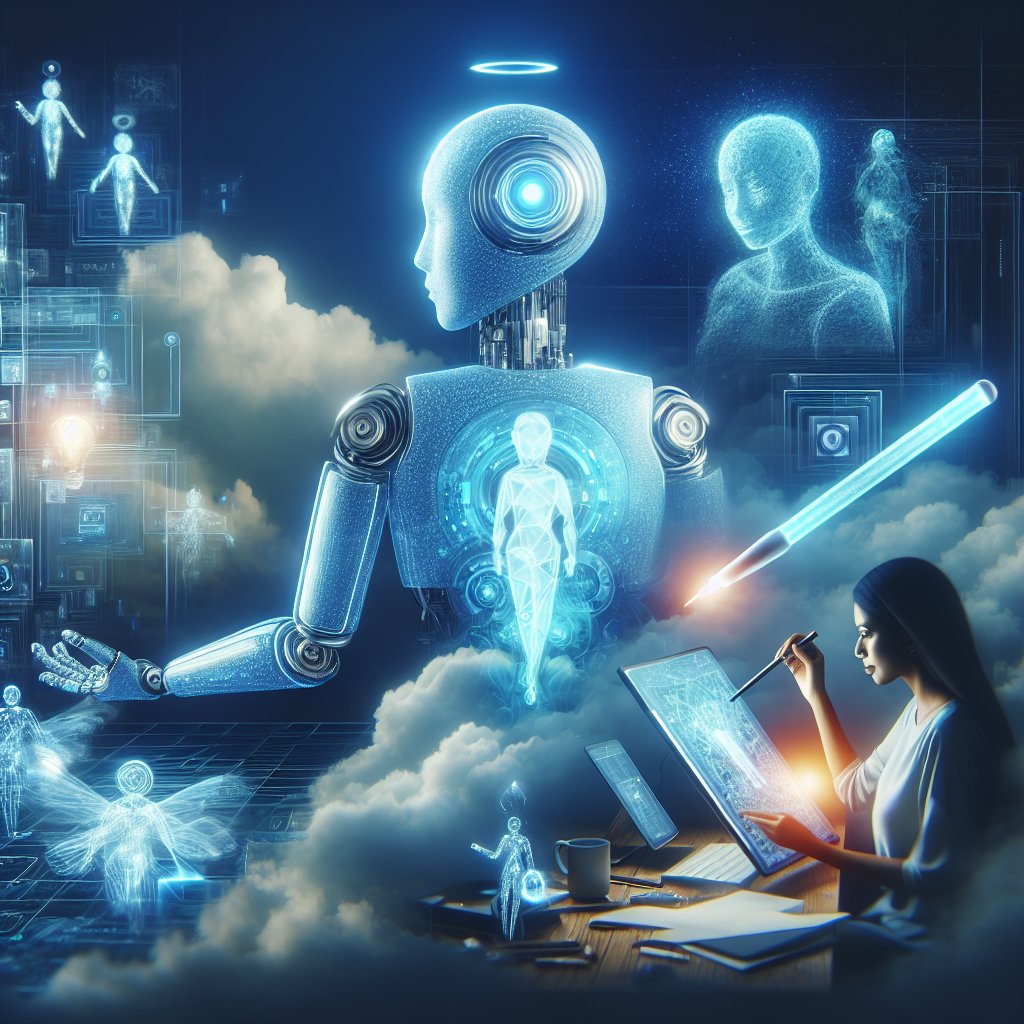As the digital world increasingly intertwines with artificial intelligence (AI), content creators find themselves at a pivotal crossroads. With this complex interplay between human ingenuity and machine efficiency, the narrative around content creators is not about replacement but rather about adaptation and collaboration for an innovative future.
Use of AI for Content Creators
In the digital age, content creators are finding that artificial intelligence (AI) is revolutionizing the way they craft and distribute material across various platforms. AI-driven tools and platforms are empowering writers, videographers, and other creative professionals to optimize their content for maximum reach and engagement. With capabilities ranging from content personalization to predictive analytics, AI provides content creators with an arsenal of resources to enhance the quality and relevance of their work. The technology assists in everything from SEO optimization, topic generation, and even the creation of written and visual content, making it an indispensable ally in the increasingly competitive world of content creation.
The involvement of AI in the content creation process also allows for more efficient workflow management. By automating mundane and repetitive tasks, AI frees up creators to focus on the more innovative aspects of their work. Advanced language models and machine learning algorithms can generate drafts, suggest edits, and even produce complete articles on a given topic, vastly speeding up production times and potentially raising the bar for content quality. As AI technologies continue to evolve, the role of these intelligent systems in assisting content creators promises to expand, offering new and exciting ways to tell stories, reach audiences, and achieve success in the sphere of content creation.
The Potential for AI to Replace Content Creators
The rapid advancement of artificial intelligence (AI) technology has sparked intense discussions about the future of various professions, including content creators. In today’s digital world, content is king, but the throne may soon be contested by AI capable of generating written articles, producing videos, and even creating complex graphics. The evolution of AI tools, such as natural language generation and machine learning algorithms, has enabled them to learn from vast amounts of data, mimic creative processes, and produce original content that resonates with human audiences. As AI continues to refine its creativity and efficiency, the question arises: Could these intelligent systems one day replace human content creators entirely?
Exploring this realm, the role of AI in the field of content creation is multifaceted, offering both opportunities and challenges. Sophisticated algorithms are already curating personalized content, suggesting editorial changes, and automating repetitive tasks, leading to a seismic shift in how content is produced and managed. Furthermore, the integration of AI in the content creation process has the potential to significantly reduce the time and resources required to generate content, allowing for an unprecedented scale of production. But will the nuanced understanding and emotional intelligence of human creators become obsolete, or will AI serve as a tool that complements and enhances the human touch in content creation? As we stand at this technological crossroads, the balance between AI capabilities and the irreplaceable value of human creativity is set to define the future landscape of content creation.
Will AI Improve Content Personalization and Distribution?
In today’s digital era, content personalization and distribution are pivotal for engaging audiences and driving customer loyalty. Artificial intelligence (AI) stands at the forefront of revolutionizing how content is tailored and delivered to individuals. With AI’s advanced algorithms and data processing capabilities, it can analyze vast amounts of user data, understand preferences, and predict behaviors. This insight enables AI to curate and personalize content to an unprecedented degree, ensuring that each user interaction is as relevant and impactful as possible.
AI isn’t just transforming personalization; it’s also streamlining distribution. AI systems can optimize content delivery channels, determining the best time and platform to reach an audience effectively. By analyzing performance data, these intelligent systems continuously improve their distribution strategies, effectively engaging target demographics while conserving resources. The combination of these advancements positions AI as a transformative tool that not only enhances user experiences through bespoke content but also maximizes the efficiency and effectiveness of distribution strategies in the ever-evolving content landscape.
How Will Training and Skills for Content Creators Evolve with AI Integration?
The landscape of content creation is experiencing a seismic shift with the integration of artificial intelligence (AI), marking a transformative period for content creators. As AI technology becomes more sophisticated, it promises to redefine the role of human creativity in content production. With tools that can generate textual content, enhance visual elements, and personalize user experiences, AI is set to alter the skill set required by content creators. The evolution of these skills doesn’t just encompass mastery of AI tools but also an emphasis on understanding data analytics, SEO optimization, and audience engagement strategies. Creators must become adept at working alongside AI, leveraging its capabilities to enhance the quality and efficiency of content creation.
Training programs for content creators are rapidly evolving to incorporate AI-centric modules that focus on both technical and strategic aspects of AI integration. Traditional writing and design skills are being complemented with training on how to utilize AI for content generation, automated editing, and distribution strategies. As AI can handle repetitive and time-consuming tasks, content creators are empowered to focus on crafting compelling narratives and concepts that resonate deeply with audiences. The demand for a blend of artistic insight and technological proficiency is causing educational institutions and online platforms to offer courses that cover AI-empowered content strategies, enabling creators to stay competitive and innovative in a rapidly changing digital landscape.







